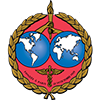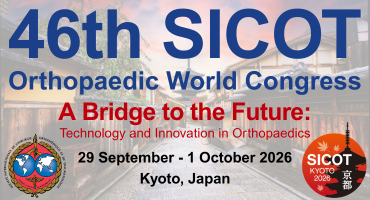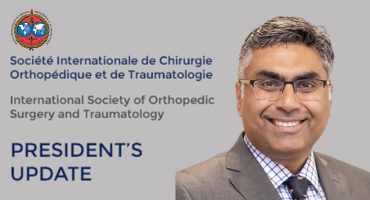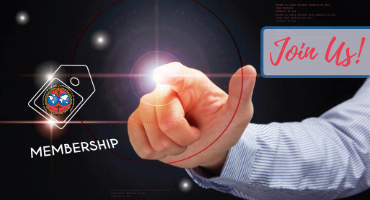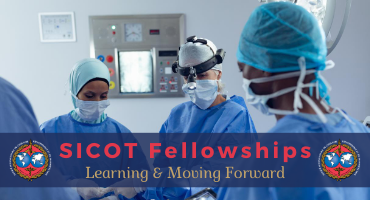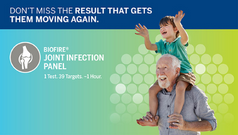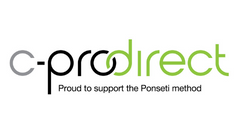Special Issue
Much ado about coffee: a non-coffee drinker’s perspective
 Temiloluwa Olufemi - Lagos, Nigeria
Temiloluwa Olufemi - Lagos, NigeriaAssociate SICOT Member
Do you remember the first time you were given the ‘alien’ glare... yes, you read right! You know that ‘look’ coffee drinkers give members of the non-coffee drinking clan when you decline an invite to have coffee... Exactly!!
Mine was way back at university. I had erroneously assumed that medical school was pretty much like a stroll in the park having badged a set of distinctions in high school. But I got a wake up call 2 days before my first Anatomy test. There was just so much to read... and not enough hours in the day to do so! I stumbled on a reading group, and was given the ‘alien’ glare when asked if I had tried coffee. I promptly settled for my first cup of coffee, and waited for its wonder working effects - gleeful wakefulness, cheating Mother nature, unending reading hours clocked in the library and yes... completing the syllabus in record time to ace my test!
Sadly, coffee did the exact opposite because I slept off that night, most of the next day and during the test!! I recall vividly (and embarrassingly so) being awoken by the invigilator who assumed I was a Brainiac and had completed my test only to be stunned when she saw a near empty test script. I have not had coffee since then!
There are numerous beneficial effects of coffee attributed to its active ingredient caffeine which selectively binds adenosine receptors in the brain, with resultant increased alertness, improved brain function, temporary boost of energy, and mood elevation1. Deleterious effects in large doses include anxiety, irritability, rapid heartbeat, excessive urination, sleep disturbance, and a "caffeine crash" once the effects wear off2. In spite of several caffeine related myths (erroneous assumptions that increased wakefulness is sacrosanct), there exists an intra-individual variability in the effects of coffee1,3. While increased alertness and insomnia occur in many, others experience reduced fine motor coordination, headaches and somnolence2.
Although 64% of American adults are coffee drinkers4, a whooping 36% do not drink coffee. Some delegates at the SICOT OWC in Montreal in 2018 alluded to various reasons for their informed choice to abstain from coffee. They include the deleterious effects outlined above, fear of addiction, lack of taste, mood changes, excessive diuresis, and increased expenses (yes... a good cup of coffee sets you back much more than a glass of water!).
Why then does coffee keep most people awake, but makes others sleep? A systematic review by Clark et Landolt5 comparing coffee, caffeine and sleep shows that the magnitude of caffeine’s effects on sleep are modulated by individual differences related to age, sex, weight, genetic predisposition, amongst others; and the need for further research was well emphasized.

Coffee does exist in diverse forms, but who says we only have to ‘drink’ it? Do you recall the idiom ‘If you can’t beat them, join them’? Well, I do like coffee beans... they seem to work wonders in a perfumery!
- https://www.coffeeandhealth.org/topic-overview/caffeine-and-sleep/
- https://www.sleepfoundation.org/sleep-topics/caffeine-and-sleep/page/0/1
- https://www.sleep.org/articles/what-does-caffeine-do-2/
- https://dailycoffeenews.com/2018/03/21/current-coffee-consumer-trends-inside-the-ncas-2018-report/
- Clark I. and Landolt H.P9 2016) Coffee, Caffeine, and Sleep.Sleep Med Rev,31:
